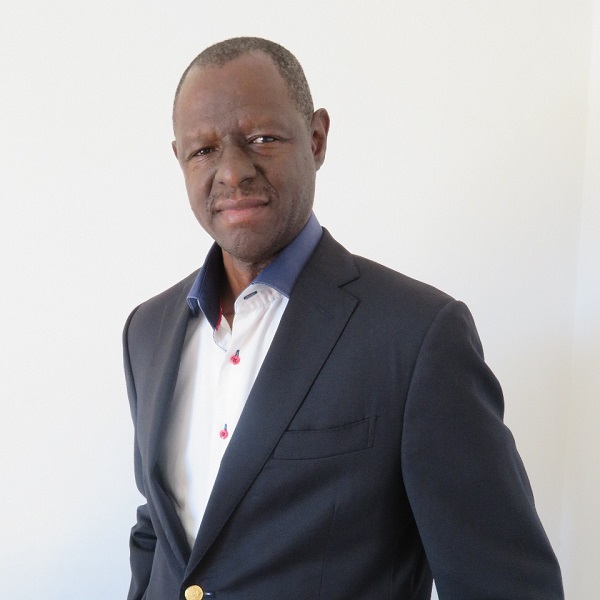
By Silvio Almada
In 2005, I participated in the AFRINIC and AfNOG training in Mozambique, and as part of the event, we visited the MOZIXP hosted at Eduardo Mondlane University.
We had extensive technical explanations of how the IXP infrastructure works, and the benefits to the technical community, the business case and the contribution to overall network resilience.
After that training, I went back home and contacted the technicians of the main Internet Companies in Angola and talked to them about the advantages of an IXP and the benefits to the community. They all embraced the idea and communicated to their Directors, who also supported the set up of the IXP in Angola.
With the support of the local operators, I contacted the Regulatory Body (INACOM) at the time directed by Eng. João Beirão, who guaranteed institutional support.
From the various meetings between the ISPs it was agreed that we host the IXP at Angola Telecom and the operators were open to making contributions for the acquisition of equipment. For a start, we needed a 42 U Rack, a 24 port Switch and a Reflector Router. We had no public ASN number, we used private ASN and IPs.
We have been able to provide peering for all Internet Service Providers, and we have fulfilled one of the objectives of maintaining local traffic within our boundaries. The IXP drastically lowered latency for content based in the country and in this regard, the AO-IXP became a critical infrastructure in the Internet ecosystem in Angola with incalculable benefits to everyone.
The other effort was the deployment of Caches as a way to have the content close to the users and increasing the performance of International content based in the country. The implementation of Cache Server is an ongoing project at AO-IXP.
There is a second IXP, which is commercial and belongs to a Carrier, and is implementing the same activities, which means more content stays local. Operators with more resources link to both IXPs while others choose to peer in one IXP.
Given the positive evolution of the IXP Project we decided to create the Angolan Internet Association as a neutral organization to control and manage Angola IXP. The Association was formally constituted in 2010 and had as one of the services for its members the interconnection at AO-IXP.
Angola-IXP joined the African IXP Association (AFIX) from the beginning and has been participating in all AfPIF events sharing and gaining valuable experiences, which have contributed to the remarkable growth of our IXP.
It’s because of our participation to AfPIF that we had the opportunity to have experts like Nishal Goburdhan come to Angola and offer training on IPv6 and support our technical community in optimizing the Angola-IXP.
With the acquisition of ASN and the Public IPs, we upgraded our IXP infrastructure, with support from the local community and the Internet Society. Currently, Angola-IXP provides the following services:
- Router Server -where member routes via multilateral peering strategy.
- Domain Name System (DNS) Root Server
- Network Time Server “NTP Server
- Looking Glass
- Digital Video Conferencing platform (Jitsi)
As part of the services, we have also the Google Global Cache Server, DNS Cache root servers like Gransy, ISC (F-root), PCH, Microsoft Cache (currently not working but we are waiting for Microsoft Team to upgrade Cache).
Among the biggest players we have cable television providers, Telecom and Mobile Operators “TvCabo, AngolaTelecom, Unitel, Zap MStelcom and ITA.
With the entry into operation of the new fibber optic cables such as WACS and SACS, the Internet capacity outside Angola has increased, improving the end user experience in accessing international content.
My purpose for Angola-IXP in addition to maintaining the national traffic in the country is to promote hosting in the National Data Center. In order to accelerate this goal, we will work with government on measures such as tax reduction for local connectivity, in order to reduce end user connectivity costs.
Five years ago, as part of the African Union’s African Internet Exchange System (AXIS) project that the Internet Society was implementing to support the development of IXPs in Africa, I had the opportunity to facilitate a Best Practice training workshop in Cape Verde. Again in May 2020, the Internet Society invited me together with Ghislain Nkeramugaba to facilitate another Best Practice workshop online. These workshops have been good opportunities for me to learn from others and also share my experience of establishing Angola-IXP.
For the past many years, the support we have had from Africa’s tech community has been valuable. I want to thank people like Nishal Goburdhan, Michuki Mwangi and many others who have been relentlessly working not only for the development of Angola-IXP but for the growth of the Internet ecosystem in Africa.
We are all willing to help each other and pay it forward by helping upcoming IXPs!